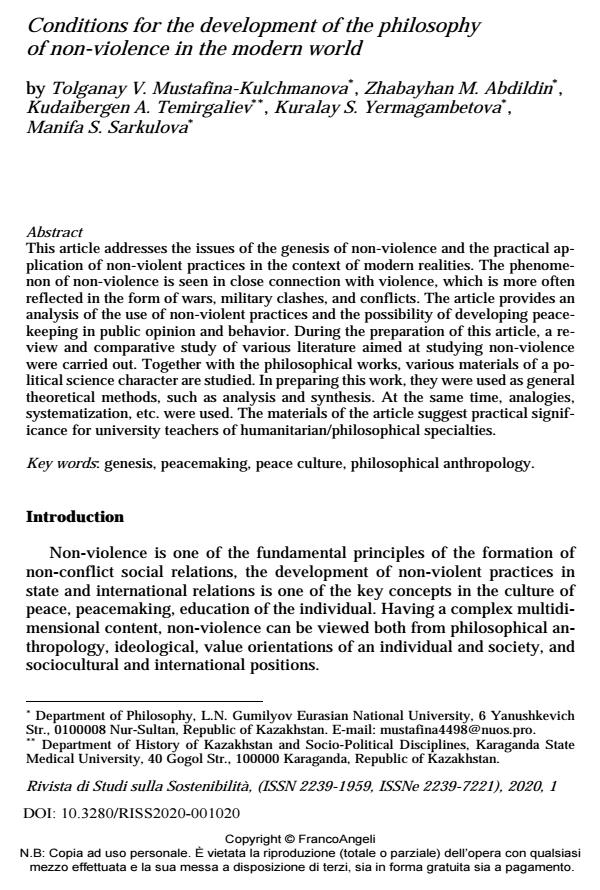Conditions for the development of the philosophy of non-violence in the modern world
Journal title RIVISTA DI STUDI SULLA SOSTENIBILITA'
Author/s Tolganay V. Mustafina-Kulchmanova, Zhabayhan M. Abdildin, Kudaibergen A. Temirgaliev, Kuralay S. Yermagambetova, Manifa S. Sarkulova
Publishing Year 2020 Issue 2020/1
Language English Pages 16 P. 337-352 File size 121 KB
DOI 10.3280/RISS2020-001020
DOI is like a bar code for intellectual property: to have more infomation
click here
Below, you can see the article first page
If you want to buy this article in PDF format, you can do it, following the instructions to buy download credits

FrancoAngeli is member of Publishers International Linking Association, Inc (PILA), a not-for-profit association which run the CrossRef service enabling links to and from online scholarly content.
This article addresses the issues of the genesis of non-violence and the practical application of non-violent practices in the context of modern realities. The phe-nomenon of non-violence is seen in close connection with violence, which is more often reflected in the form of wars, military clashes, and conflicts. The article pro-vides an analysis of the use of non-violent practices and the possibility of develop-ing peacekeeping in public opinion and behavior. During the preparation of this article, a review and comparative study of various literature aimed at studying non-violence were carried out. Together with the philosophical works, various ma-terials of a political science character are studied. In preparing this work, they were used as general theoretical methods, such as analysis and synthesis. At the same time, analogies, systematization, etc. were used. The materials of the article sug-gest practical significance for university teachers of humanitarian/philosophical specialties.
Keywords: Genesis, peacemaking, peace culture, philosophical anthropology.
Tolganay V. Mustafina-Kulchmanova, Zhabayhan M. Abdildin, Kudaibergen A. Temirgaliev, Kuralay S. Yermagambetova, Manifa S. Sarkulova, Conditions for the development of the philosophy of non-violence in the modern world in "RIVISTA DI STUDI SULLA SOSTENIBILITA'" 1/2020, pp 337-352, DOI: 10.3280/RISS2020-001020